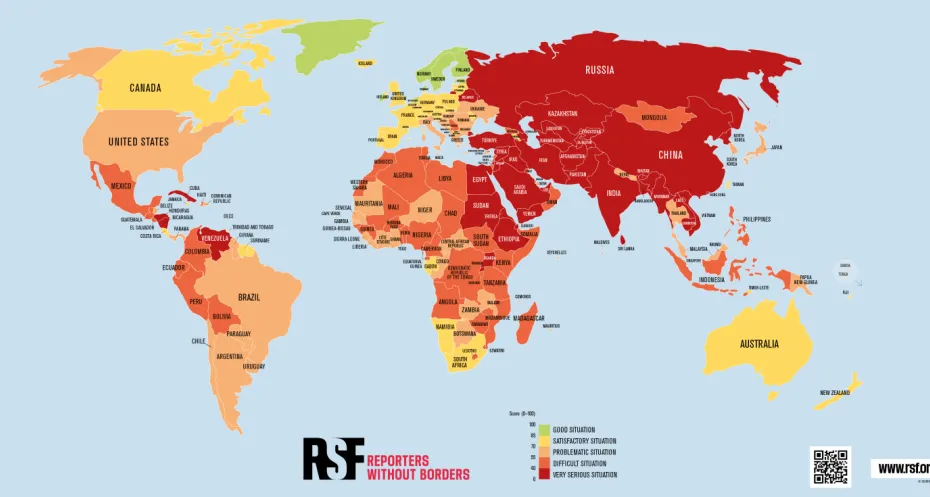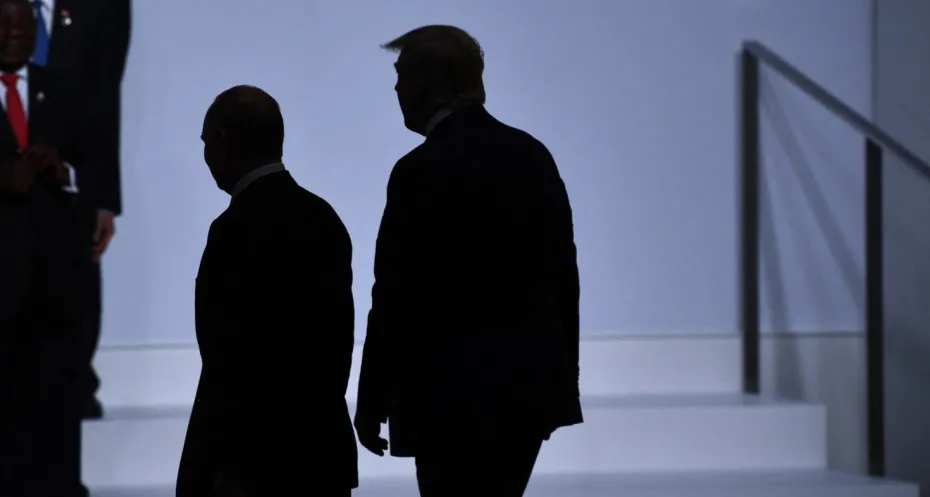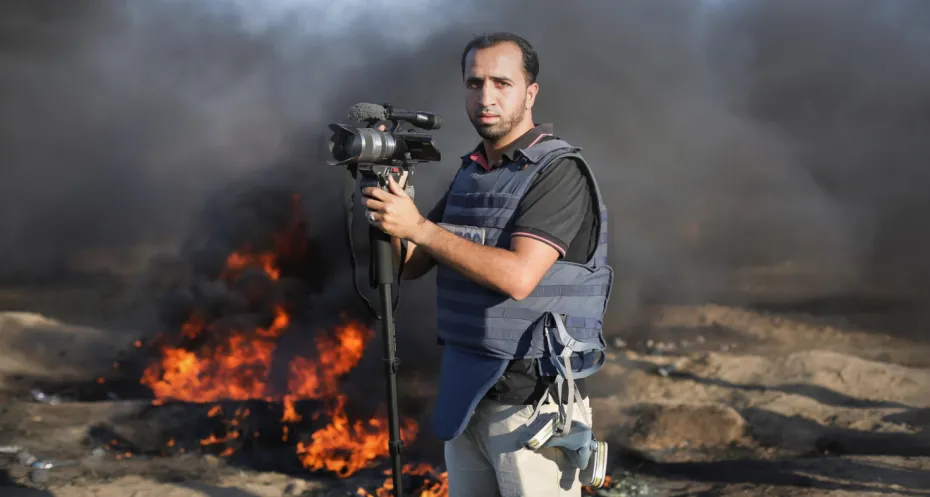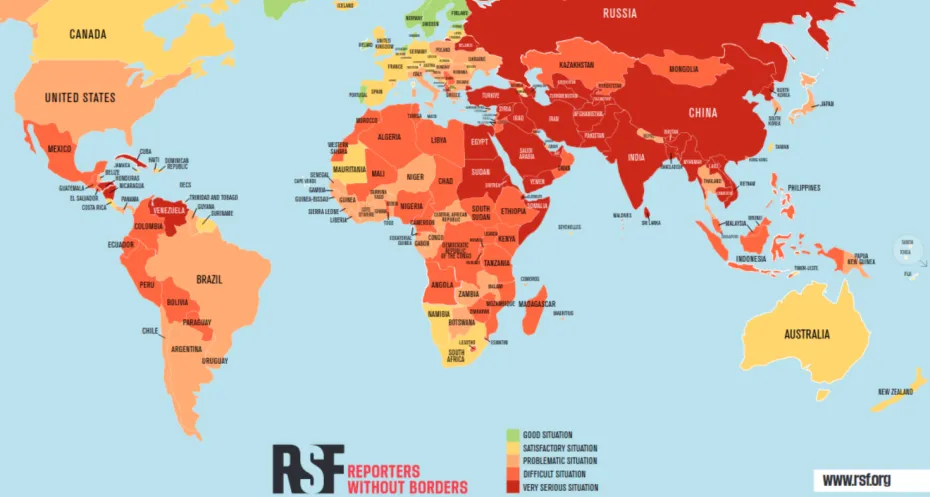Press freedom reaches global low: The Netherlands remains exception

The state of press freedom has reached a new low worldwide. For the first time in the history of the World Press Freedom Index, compiled annually by Reporters Sans Frontières (RSF), the global situation has been classified as ‘difficult’. While the world map colours more orange and red, The Netherlands remains an exception for now with a green rating and a rise from spot four to three. ‘Yet this is no reason for complacency: in The Netherlands too, the number of threats is increasing, legal intimidation is increasingly used to censor journalists and there is a political climate that undermines trust in the media.’ says Ruth Kronenburg, Executive Director Free Press Unlimited (FPU).
It is not just physical attacks and political hostility that threatens the free press; increasing economic pressures also pose a creeping but destructive threat to independent journalism. Big tech companies have managed to grab the vast majority of advertising revenue that used to go to the media. The number of physical advertisers and financial support from governments is also dwindling. On top of this, the sudden discontinuation of US support for international media - for years a major source of funding for independent press in fragile regions - has led to financial shortfalls in numerous media organisations. Kronenburg explains, ‘As a result, the right to exist of many news organisations is under severe pressure and there is less and less ability to counter authoritarian influences and disinformation.’
Journalists increasingly targeted
The year 2024 was the deadliest year ever for journalists. War zones such as Gaza, Sudan, Ukraine and the Democratic Republic of Congo pose extreme risks to journalists, who report under mortal danger and are increasingly targeted. This is a very alarming development: when journalists are deliberately attacked, not only is their safety compromised, but the right to information of citizens is also undermined. Journalists fulfil a vital need; they provide civilians with reliable and timely information that can be life-saving in times of war.
‘The situation in Gaza and the West Bank is inhumane. Israel continuously violates international law under the watchful eye of the international community, including the killing of an unprecedented number of journalists. Without independent reporting, we are increasingly losing track of what is happening, war crimes and human rights violations are not being documented and we cannot hold those in power accountable for their actions’, Kronenburg reveals.
Disinformation as one of the biggest enemies for the free press
FPU sees disinformation as one of the greatest enemies to press freedom. Disinformation undermines public trust in independent journalism. It makes it harder for people to distinguish facts from falsehoods. ‘It is used strategically by those in power to suppress critical media and restrict journalistic freedom’, Kronenburg discloses.
‘With the spread of disinformation, public debate can be influenced to disrupt electoral processes or exploit social divisions and polarize societies. In the long run, this can lead to serious distortions that threaten the stability of a democracy. - Ruth Kronenburg, Executive Director Free Press Unlimited
Progress and risks for press freedom in the Netherlands
The Netherlands climbs to third place in the Index this year - a slight improvement that is partly due to important steps taken against impunity: In 2024, six suspects were convicted for the murder of crime journalist Peter R. de Vries. In addition, another suspect, previously detained in the Caribbean, was recently extradited. These actions underline the importance of a well-functioning justice system.
Yet the situation in The Netherlands remains precarious. The physical safety of journalists is under pressure: in 2024, Pers Veilig recorded 249 incidents, including threats, intimidation and physical violence - an increase compared to previous years. Moreover, the use of legal harassment is on the rise, among others through SLAPP lawsuits - Strategic Lawsuits Against Public Participation. These lawsuits often lead to self-censorship and cause considerable psychological and financial strain, especially among freelance journalists and small media companies, a FPU report found. FPU also sees politicians contributing to a hostile climate by portraying journalists as biased or unreliable. Harsh statements, such as Geert Wilders referring to journalists as “scum”, creates a climate in which violence against journalists is normalised.
Stand up for press freedom
Fortunately, there are also bright spots in the fight for press freedom. Around the world, courageous journalists are fighting for our access to reliable information. They are not alone. Organisations like Free Press Unlimited offer support, from security training to legal help. But also at policy level, we fight for better safety of journalists. Only together can we preserve the free press.



